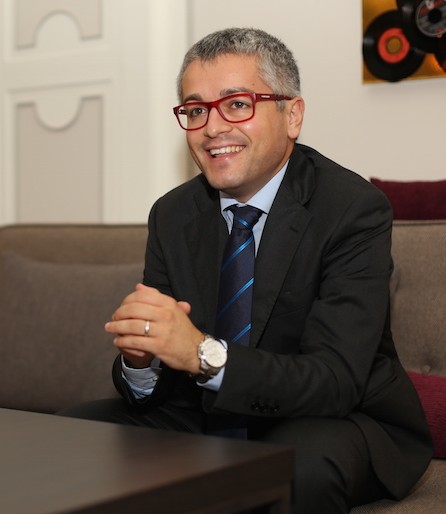
Da questo secondo giorno di ministeriale NATO, emerge in tutta la sua ampiezza ed eterogeneità la crisi internazionale alla quale assistiamo ormai quotidianamente.
Il Segretario Generale si è soffermato, come ho anticipato ieri, sull’emergenza profughi che sta rapidamente mutando in forma e portata, rischiando di generare una vera e propria crisi nella crisi.
L’Unione Europea viene tirata in ballo direttamente e anche questa tendenza era stata preannunciata nelle dichiarazioni dei giorni scorsi. Frontex viene indicato come attore di riferimento per quanto riguarda l’attività di competenza europea sul fronte umanitario, che l’Alleanza – almeno per il momento – si limiterà a supportare con missioni di sorveglianza per mezzo delle navi del secondo gruppo navale permanente (SNMG2), già attivato e in navigazione verso l’Egeo.
I compiti sono assimilabili in buona parte a quelli svolti dalla nostra Marina Militare in Mediterraneo (con tanto di limitazioni nelle regole di ingaggio), pertanto potrebbe far storcere il naso il fatto di non aver ricevuto la stessa attenzione quando la crisi umanitaria ha toccato le nostre coste. Non è sicuramente il caso di strumentalizzare il caso, ma non bisogna nemmeno sottovalutare il ruolo che la nostra Difesa ha svolto e sta svolgendo in totale autonomia nel bacino del Mediterraneo. Adesso magari è più facile apprezzare il coraggio delle scelte del Ministro Pinotti di fronte all’insensibilità internazionale rispetto all’emergenza italiana.
Al contrario, l’esplicito ricatto del “sultano” Erdogan all’Europa è l’emblema di un sistema politico internazionale in confusione. Ogni organizzazione internazionale nella partita ha difficoltà a stabilire il proprio ruolo e a definire i propri spazi di manovra. Questo è il terreno in cui l’Alleanza deve muoversi per venire incontro all’Europa, tutelando l’alleato turco e disinnescando, nel frattempo, i bollori del redivivo sedicente impero ottomano con l’alleato greco ed il dirimpettaio russo-siriano.
Così, da un lato il Segretario Generale orienta il dispositivo della NATO verso una funzione di supporto, attento a non urtare i già minati equilibri nella regione mediterranea, dall’altro raccomanda ai paesi membri di prestare attenzione alle proprie capacità di “resilience”: un must in tempo di pace che suona come una sirena dall’eco sinistro in tempo di crisi.
Di seguito la sintesi del suo intervento questa mattina in conferenza stampa (l’integrale è sul sito www.nato.int):
SECRETARY GENERAL PRESS CONFERENCE AFTER MEETING OF NATO DEFENCE MINISTERS AT 28
11 FEBRUARY 2016
Good afternoon.
We have just addressed how our Alliance is responding to a changed security environment.
Europe is facing the greatest refugee and migrant crisis since the end of the Second World War.
Driven by conflict and instability on our southern borders, as well as the criminal networks that traffic in human suffering.
We have just agreed that NATO will provide support to assist with the refugee and migrant crisis.
This is based on a joint request by Germany, Greece and Turkey.
The goal is to participate in the international efforts to stem the illegal trafficking and illegal migration in the Aegean.
NATO’s Standing Maritime Group 2, is currently deployed in the region under German command.
It will be tasked to conduct reconnaissance, monitoring and surveillance of the illegal crossings in the Aegean sea in cooperation with relevant authorities.
And to establish a direct link with the European Union’s border management agency Frontex.
As part of the agreement, Greek and Turkish armed forces will not operate in each other’s territorial waters or air space.
Our top military commander SACEUR is now directing the Standing NATO Maritime Group 2 to move into the Aegean without delay.
And to start maritime surveillance activities.
Our military authorities will work out all the other details as soon as possible.
And Allies will be looking to reinforce this mission.
This is not about stopping or pushing back refugee boats.
NATO will contribute critical information and surveillance to help counter human trafficking and criminal networks.
We will do so in cooperation with national coastguards, and working closely with the European Union.
We also decided to intensify intelligence, surveillance and reconnaissance at the Turkish-Syrian border.
Turkey is on the front line of this crisis and this will complement the NATO assurance measures for Turkey which we decided in December.
It is important to respond swiftly. Because this crisis affects all of us.
And all of us have to contribute in finding solutions.
Today, we also agreed to step up our support for the international coalition to counter ISIL.
We agreed in principle to use NATO AWACS surveillance planes to backfill national AWACS capabilities.
This is in response to the US request.
Our military planners are now working out the details.
The decision will increase the ability of the coalition to degrade and destroy the terrorist group ISIL, which is our common enemy.
Enhanced intelligence and surveillance is a key part of NATO’s response to hybrid threats, from the south and from the east.
We now have a detailed implementation plan for our hybrid strategy.
NATO is improving its ability to identify, recognise and attribute hybrid actions and to respond quickly.
We also took steps to increase our Allies’ resilience in areas that are vital in any crisis.
By setting baseline requirements in areas such as: continuity of government, energy supplies, food and water resources, telecoms and cyber networks and transportation systems.
Resilience is primarily a national responsibility.
But both NATO and the European Union have a role in providing tools and advice in specific areas.
So to be more effective in countering hybrid threats, we are committed to working even more closely with the European Union.
We also discussed during our meeting today the situation in Afghanistan.
Ministers assessed the work of the Resolute Support mission.
They agreed that our training, advice, and assistance for the Afghan forces remains essential for stability in Afghanistan.
And they confirmed that the mission should continue to be kept under review, to ensure its effectiveness.
So with that I am ready to take your questions.







